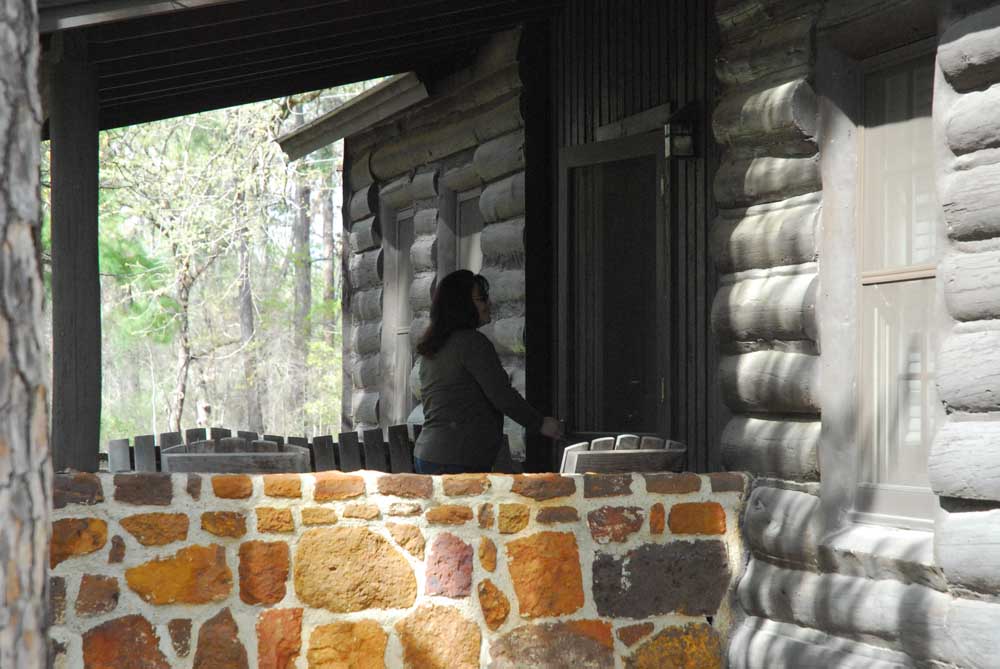Legislators considering repair to state park funding source
Published 12:06 am Friday, March 15, 2019

- Repairs to 1930s-era Civilian Conservation Corps cabins at Caddo Lake State Park are among the $800 million backlogged TPWD Parks Division. A proposed state constitutional amendment would give the agency and the Texas Historical Commission all of the Sporting Goods Sales Tax revenue. (Steve Knight/Staff)
Texas legislators have a rare chance for a do-over. Hopefully they get it right this time.
In 1993, legislators passed and voters approved a state constitutional amendment creating a Sporting Goods Sales Tax that was supposed to fund construction and repairs within the state park system. The money was to replace a penny-a-pack tax on cigarettes, a fund that had once been lucrative but was declining to near-nothing as Texans began living a healthier lifestyle.
Even with 6 percent being siphoned away for state historic sites under the Texas Historical Commission, the tax offered the prospect of adequate funding for state and local parks facilities through a fund controlled by the Texas Parks and Wildlife Department.
But as soon as the money started to roll in, legislators pounced on it like stink on a skunk.
“The way it was set up, the money still has had to be appropriated by the Texas Legislature every biennium. Only once in 25 years has the legislature appropriated the full amount. For years it was capped at 36 percent. When the Legislature finally lifted the cap, it still didn’t fully appropriate the money. Instead, the money was left sitting in the state treasury to balance the budget,” explained Janice Bezanson, Texas Conservation Alliance executive director.
Bezanson said that the one time the Legislature gave full funding in 2015, everyone began celebrating as the department made plans to eliminate $800 million in repairs and deferred maintenance, only to be told by the State Comptroller’s office the full funding was good for only one year.
The Sporting Goods Sales Tax is back before the Legislature. Legislators have introduced SJR 24 and HJR 39, along with enabling bills SB 526 and HB 1214, calling for another constitutional amendment that would ensure all the funding is passed through as voters thought they had already three decades ago.
Passage would be a boon to the state park system and state historical sites. TPWD operates 95 parks and historical sites around the state. Since its inception, the sporting goods tax has annually generated from $60 to $165 million.
“From 1993 through 2017, the state collected nearly $2.5 billion in sporting goods sales taxes, of which only 40 percent was appropriated for TPWD and the Historical Commission to use,” Bezanson said.
During that same period, the department has had to transfer some facilities to local governments and three new parks totaling almost 45,000 acres sit on the drawing board because of the lack of funding. That does not include two other sites. Construction at the 4,000-acre Palo Pinto Mountains State Park is expected to begin next year. Another 17,000 acres await transfer to the department to ultimately be developed and will only add to the parks system funding dilemma.
Today’s state park system covers more than 630,000 acres and attracts almost 10 million visitors a year. For 2019 it has an operating budget just over $86 million, about $60 million of which comes from the Sporting Goods Sales Tax, meaning another $105 million was hidden in state coffers to make it appear the budge is being balanced.
While that seems like a healthy budget, the parks division has been hamstrung in being able to make long-needed repairs because of low budgets through the years. Many parts of the system date back to the 1930s and need constant upgrades. In recent years the system has been hit hard by flooding.
“To put this fully in perspective, we have incurred over $100 million in storm-related damages in the last 10 years or so. While much of the damage from floods in recent years has been repaired, some major issues remain such as repairing levees at Brazos Bend and the rehabilitation of the lake spillway at Buescher, which were damaged by Hurricane Harvey,” said Stephanie Garcia, TPWD spokesperson. “Other needs remaining from the 2015-16 floods include repairs to the swim beach area at Cedar Hill, replacing campground restrooms at Lake Somerville and repairs to multiple bridges and culverts on the Lake Somerville Trailway. Other flood repair needs include replacement of the day-use area restroom and repairs to flood damaged CCC structures at Mother Neff.”
And that is just the tip of the iceberg. There are other day-to-day repairs pending like erosion, aging water or insufficient water systems, roofing, wastewater system upgrades, electrical upgrades, fishing pier repairs and ongoing maintenance of Civilian Conservation Corps buildings.
Receiving all of the sales tax money, the department could develop a plan for all of the repairs instead of addressing just the most important, then having to cull the list because of emergencies.
“Predictable, sustained and reliable funding is critical to address the needs of the system in a sustained and efficient manner. Because of the time involved to plan and execute large capital development or repair projects, reliable funding is essential in order to efficiently use staff resources and manage project resources to meet ongoing needs, as well as future ones,” Garcia said.
In its current configuration the state park system is close to being maxed out as far as visitation numbers. With a current state population of more than 28 million and growing and with more than 84 percent being urban residents, the demand for park space will only grow. Some parks already have to be closed on holidays and weekends after reaching their maximum visitation levels.
The Texas parks system has been shorted financially by the Legislature from Day 1 when it was allowed to acquire land by donation, but not provided any funding for development. This is a chance for the Legislature to correct past wrongs and to do what voters in 1993 thought they were approving.







